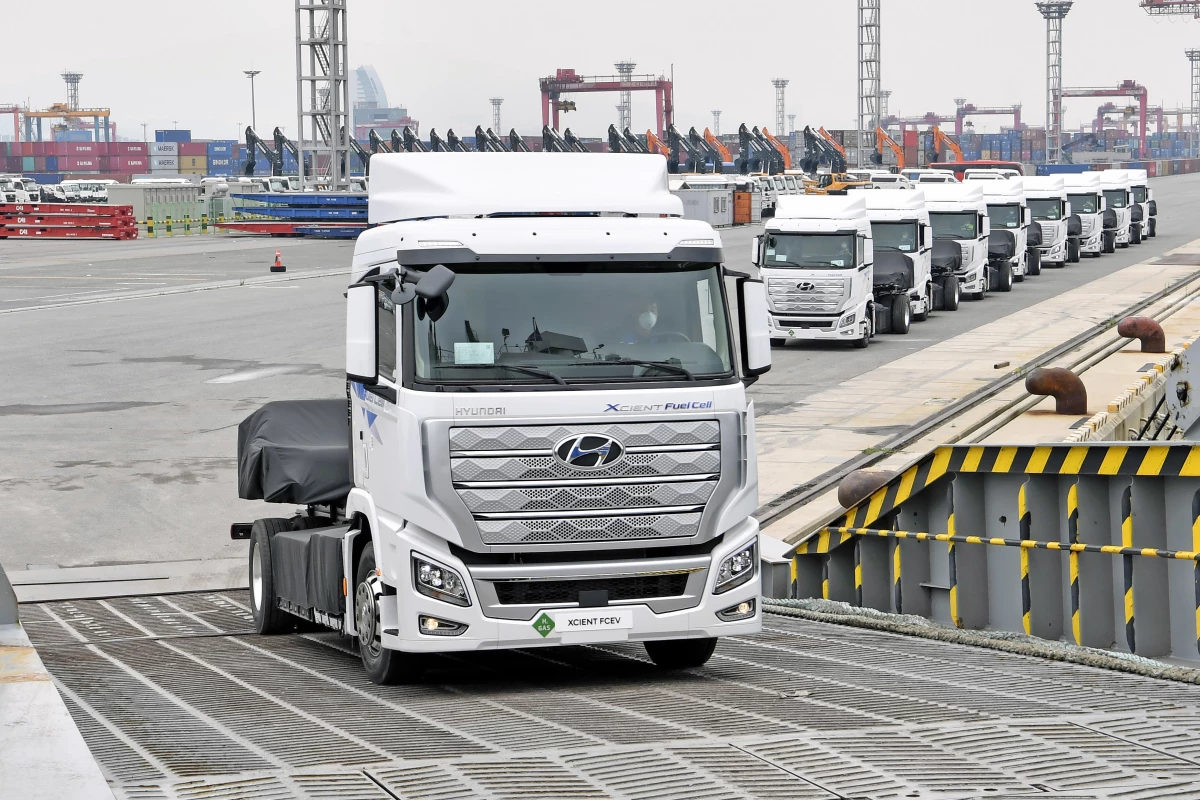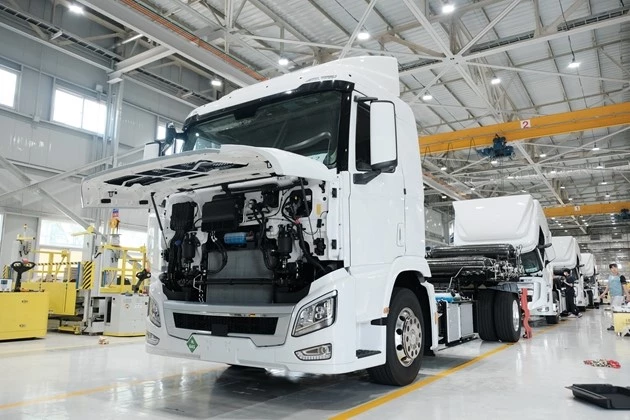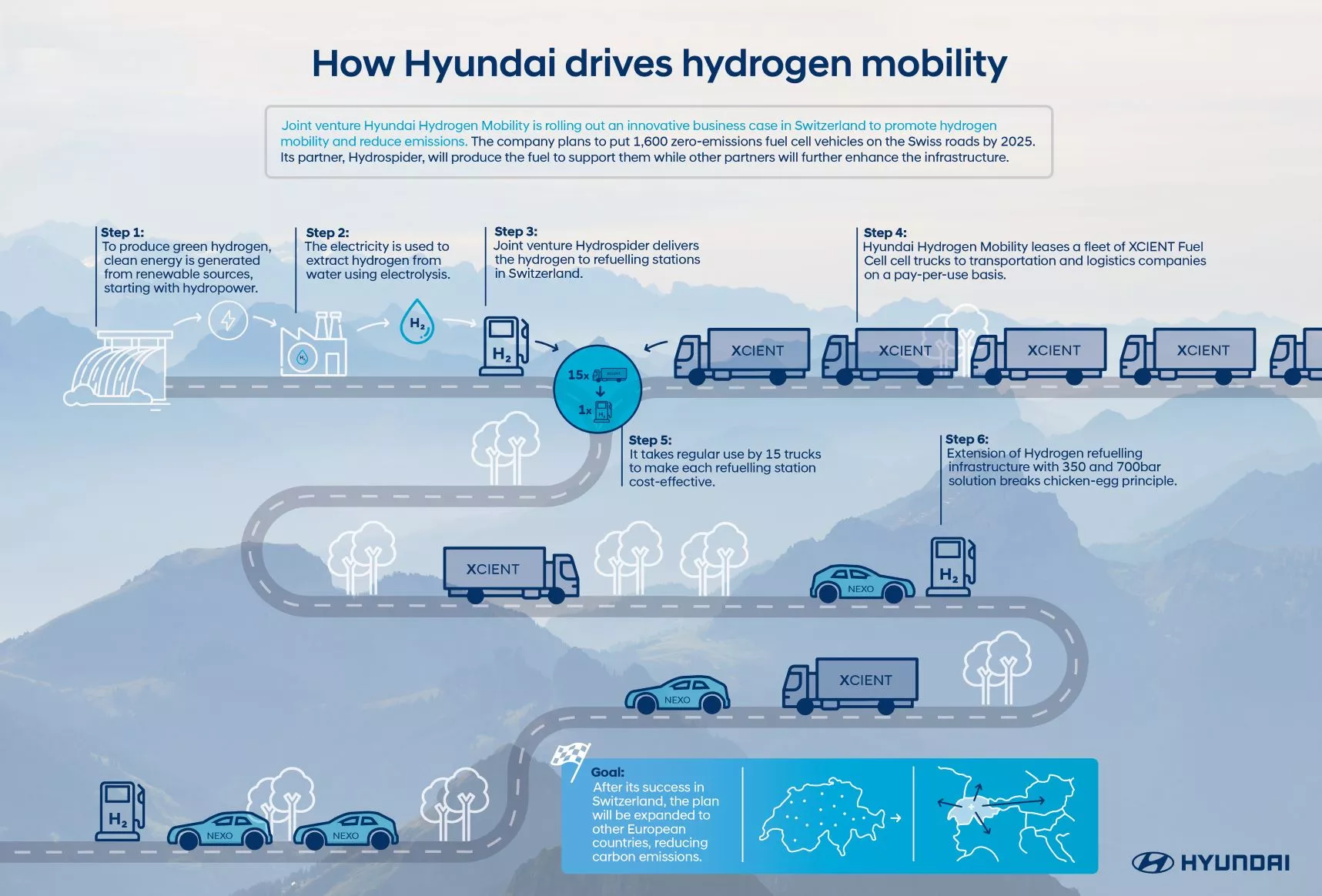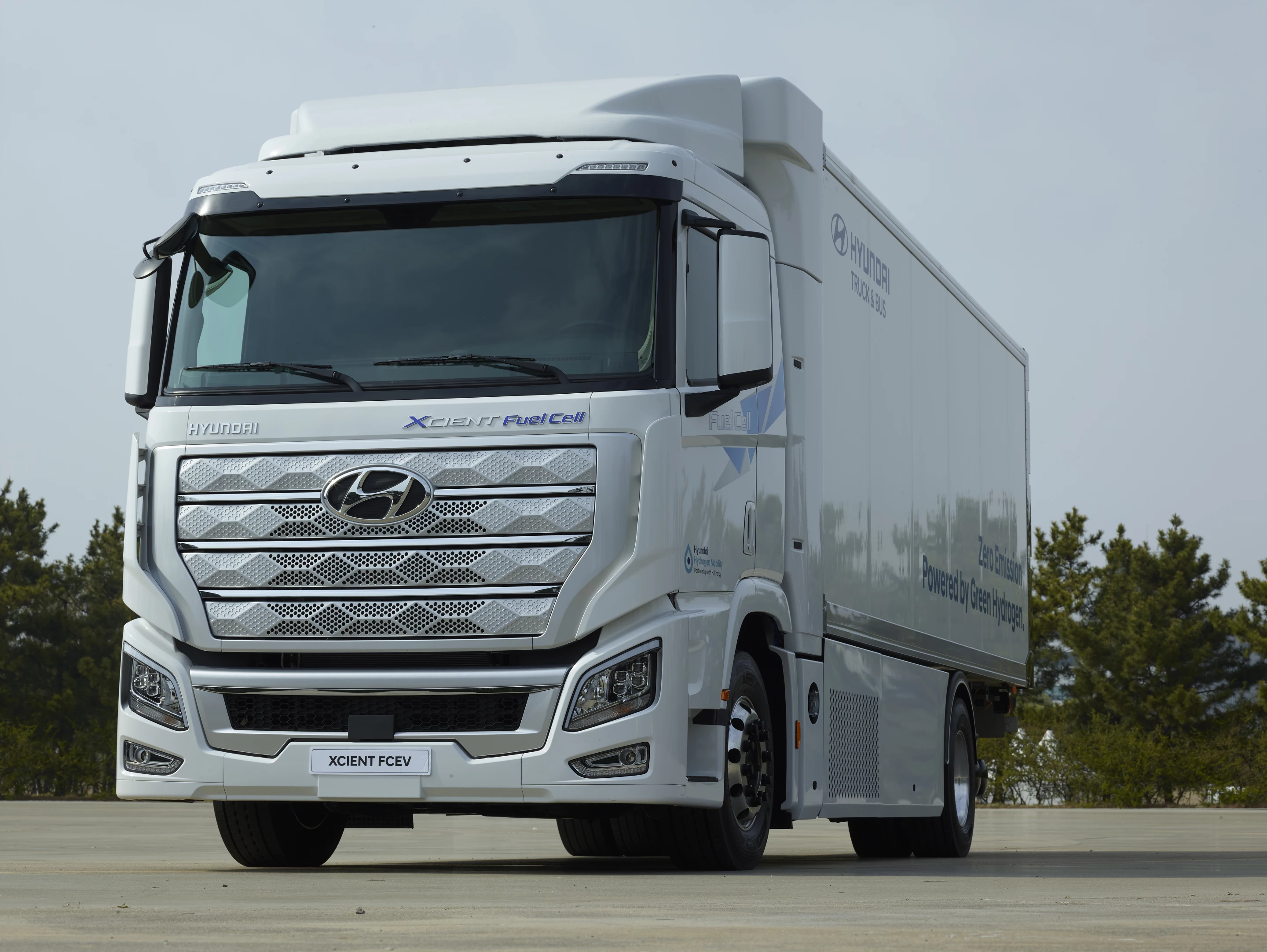The first 10 units of Hyundai's hydrogen-powered Xcient Fuel Cell – the world's first heavy duty fuel-cell-powered truck – have rolled off the production line and are on their way to Switzerland, with 40 more to follow later this year.
With a 190-kilowatt (255-hp) fuel cell converting hydrogen into electricity, these things can do around 400 km (250 mi) on a tank, emitting nothing but water. There aren't many hydrogen filling stations in Switzerland at the moment – the H2 Mobility Switzerland industry association is hoping for six by the end of the year – but hydrogen production facilities can easily be set up at depots, and a 400-km range will get you more or less anywhere in Switzerland and back again.
"Building a comprehensive hydrogen ecosystem where critical transportation needs are met by vehicles like XCIENT Fuel Cell, will lead to a paradigm shift that removes automobile emissions from the environmental equation," says Hyundai Executive VP and head of Commercial Vehicles Cheol Lee.
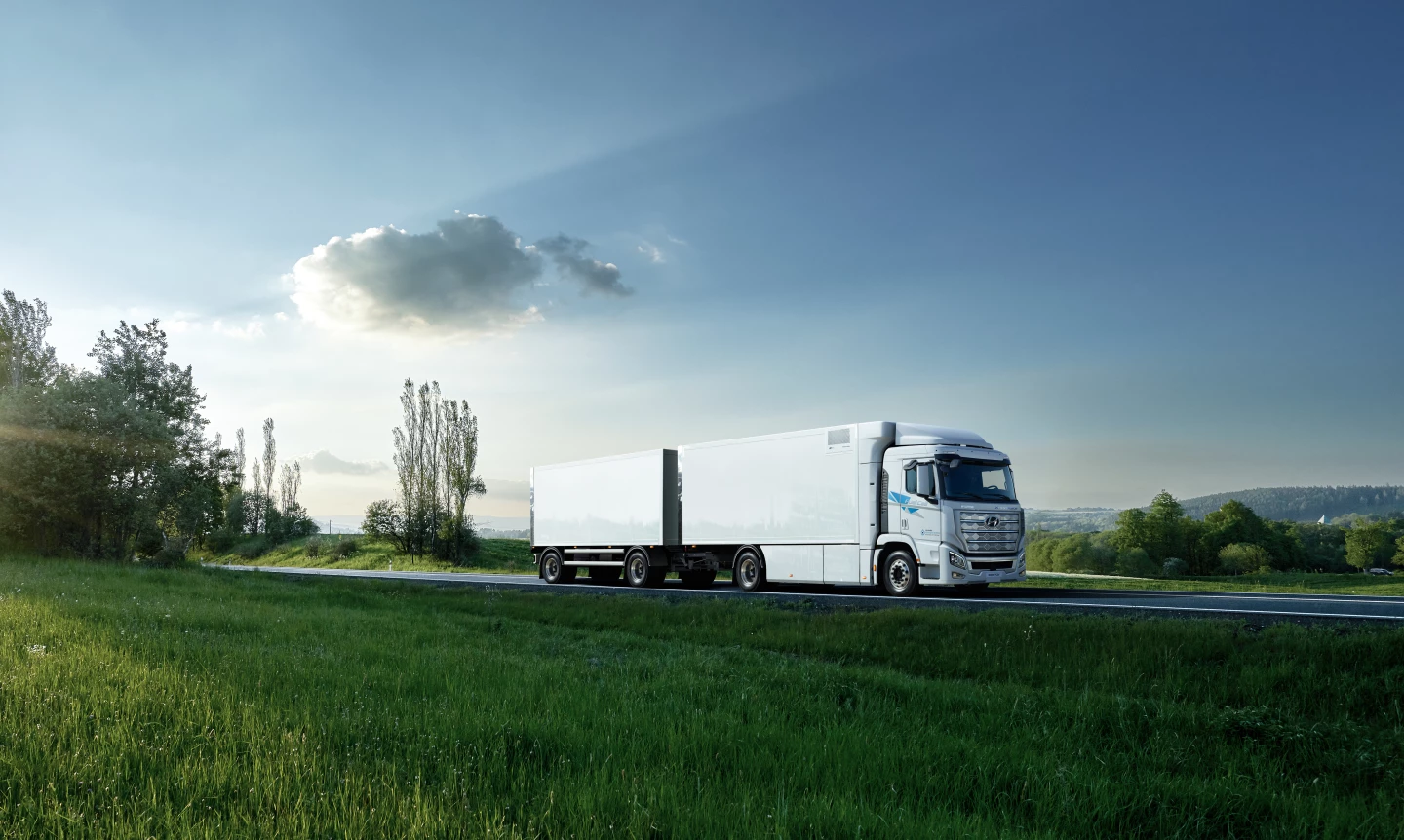
We remain unconvinced by the potential of hydrogen fuel cell-powered passenger cars, but there do seem to be areas where hydrogen's unique properties might allow it to take hold as the world moves away from fossil fuels. Aviation and shipping, for example, seem like strong potential markets thanks to hydrogen's excellent energy density, which allows far longer-range vehicles than lithium batteries.
Trucking could end up being another killer app. Companies like Tesla are pushing hard for battery-electric trucks, and the Tesla Semi has twice the range of the Hyundai Xcient Fuel Cell. But it'll take a lot longer to charge that huge Tesla battery than it will to pump a tank full of hydrogen into the Hyundai, and that could factor into the equation in a 24-hour operation cycle. Hyundai hopes to have 1,600 of its fuel cell trucks on the road by 2025.
Source: Hyundai
